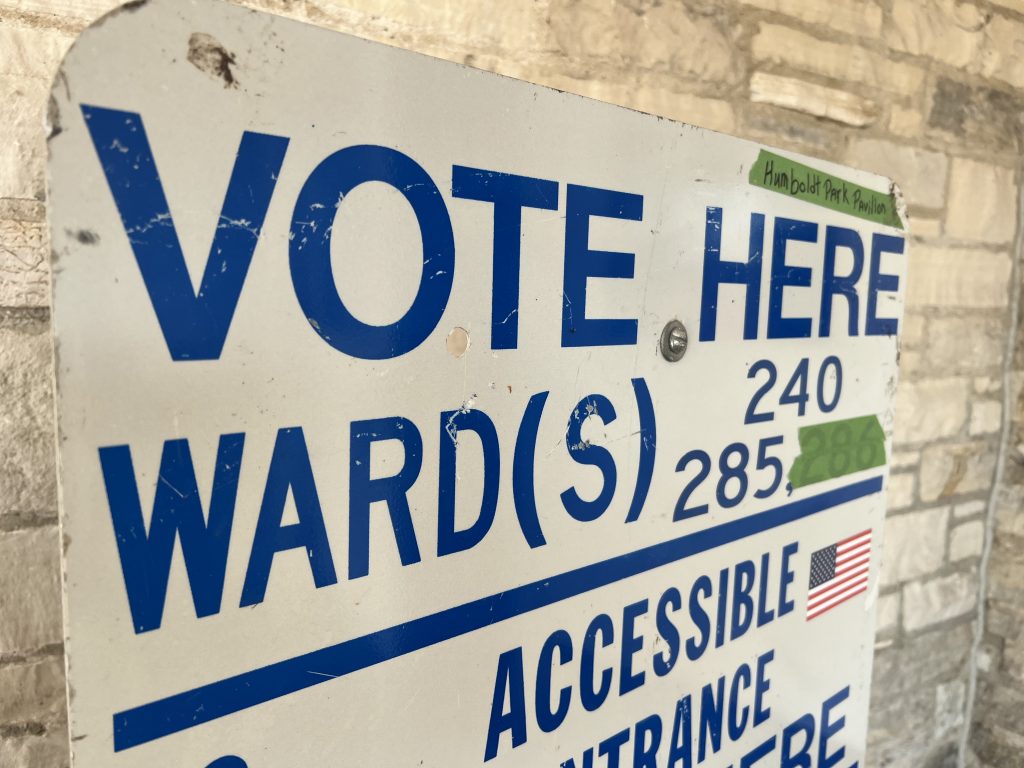Voters In Five States Could Approve Ranked Choice Voting
Wisconsin-based Democracy Found is champion of effort.
Colorado is one of five states whose voters on Nov. 5 will be asked to adopt some version of ranked choice voting – a major election reform championed nationally by Wisconsin native Katherine Gehl.
Gehl formed Democracy Found, which favors a Final Five Voting change in which the top five primary winners advance to an “instant runoff” general election, where voters’ rankings of candidates determine who wins.
“Democracy Found is a Wisconsin-based initiative committed to revitalizing democracy,” its two Wisconsin founders, Gehl and Austin Ramirez, say on the group’s website. Final Five Voting “will ensure that politicians are held accountable for delivering results.”
The Wall Street Journal reported that different versions of ranked choice voting will go before voters in Colorado, Idaho, Nevada, Arizona and Oregon on Nov. 5.
In Wisconsin’s Legislature, a ranked choice voting bill for federal offices got a public hearing, but party leaders blocked any further action.
In Colorado, a citizens’ petition added a constitutional amendment on ranked choice voting to the ballot, although it is one of 14 changes to state law or Colorado’s constitution before voters. Denver residents are being asked to vote on a total of 25 initiatives, including the 14 that would change state laws and 11 dealing with local issues.
Those referendums are in addition to the presidential choice between Kamala Harris and Donald Trump, candidates for the U.S. House, University of Colorado regent, state representative, district attorney and Regional Transportation District director.
Denver voters got a six-page ballot in the mail – three times the two pages of Wisconsin’s ballot, which includes only one proposed constitutional amendment.
In Colorado, the non-partisan Legislative Council wrote a 240-page summary – 120 pages in English and 120 pages in Spanish – of the 14 statewide referendums, including ranked choice voting.
“A ‘yes’ vote…establishes an all-candidate primary for all voters regardless of their political party for certain offices and advances the top four candidates to a general election where voters rank the candidates in order of preference once certain conditions in state laws are met,” the summary says.
Voters would rank candidates, designating them as their first, second, third or fourth choice.
In the general election, if no candidate has 50% of the vote, “In each round…votes are redistributed from eliminated candidates to voters’ next highest-ranked candidates,” the summary says. Redistributions continue until one candidate gets 50% of the votes.
“A ‘no’ vote…continues the existing primary election system and the current method of selecting candidates and counting votes at general elections,” according to the summary.
If it became law, the change would apply to races for the U.S. Senate, U.S. House, governor, attorney general, secretary of state, state treasurer, Colorado University board of regents, state board of education and seats in the Legislature.
But, Legislative Council analysts add, ranked choice voting could not begin in Colorado until specific conditions are met.
“At least 12 municipalities that meet various demographic qualifications must use ranked choice voting, and the state must audit these elections and prepare a report, before an election for state and federal offices using the changes proposed in the measure can occur.”
After the sale of her family’s company, Gehl Foods, Gehl cowrote a book recommending ranked choice voting and has advocated for it nationally.
The Colorado Legislative Council report lists arguments for and against ranked choice voting,
Advocates say it “gives all voters an equal opportunity to decide which candidates make the general election ballot. There are many districts in Colorado that are safe for one major political party, which means that whoever wins that primary almost always wins the general election.”
And, “Voters are more empowered to give a top ranking to their favorite candidate, while still supporting backup choices. [It] could lead to election results that better reflect the will of the voters.”
Those against ranked choice voting say it is “more complex and expensive,” the summary says. “Voters will have to vote in two different systems for each election and may receive multiple ballots. Taxpayers will pay for extensive voter education and outreach. Even so, some voters will still be confused and will incorrectly fill out their ballots.”
And, “Political parties play an important role in our political system and should have their own primary elections to select candidates who reflect their beliefs and policy priorities.”
Other proposed Colorado constitutional amendments include a right to an abortion, repealing language that defines marriage as between one man and one woman and a 6.5% sales tax on guns, gun parts and ammunition to pay for mental health, school safety and gun violence prevention programs.
Steven Walters started covering the Capitol in 1988. Contact him at stevenscotwalters@gmail.com
If you think stories like this are important, become a member of Urban Milwaukee and help support real, independent journalism. Plus you get some cool added benefits.
The State of Politics
-
A Wisconsin Political Trivia Quiz
 Dec 15th, 2025 by Steven Walters
Dec 15th, 2025 by Steven Walters
-
The Fight Over Wisconsin’s House Districts
 Dec 8th, 2025 by Steven Walters
Dec 8th, 2025 by Steven Walters
-
The Battle Over On-Line Betting
 Nov 24th, 2025 by Steven Walters
Nov 24th, 2025 by Steven Walters























With the current state of politics nationally focused on power retention rather than the greater good and WI having no method for ballot referendums without the approval of the legislature, we will be the last state to implement ranked choice.
Many of our current representatives at the federal and state level would not do well in a ranked choice election (Trump and Kamala wouldn’t either), and it would allow 3rd parties like libertarian and green to have a chance, so it ain’t gonna happen.
We may be the last state for cannabis legalization, Medicare expansion, and implementing ranked choice voting. Ya know, all the popular things the people want but our representatives don’t.